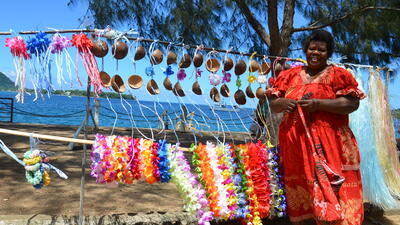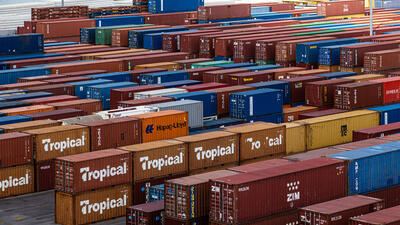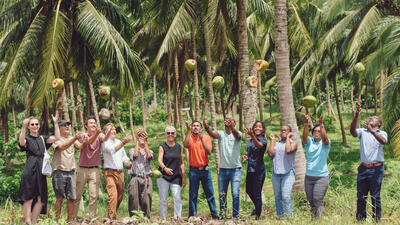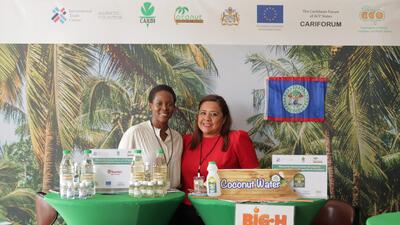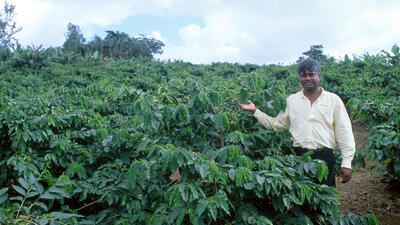
Meeting the climate challenge
A guide for organizations supporting businesses in the agrifood sector, with a look at small island developing States
Risks and opportunities in the green transition
Climate change is posing a severe threat to the agrifood sector, particularly in developing countries. With falling yields due to rising temperatures and large losses to extreme weather events, farmers and companies are having to manage heightening levels of risk.
In addition, agrifood businesses face an array of new climate-related standards and regulations with which to comply. On the positive side, market opportunities are emerging for climate-related goods and services.
The agrifood sector contributes significantly to climate change (31% of greenhouse gas emissions) but is also the most vulnerable sector.
Agriculture provides a livelihood for 2.5 billion people and is the largest source of income and jobs for poor rural households.
Given these multiple new risks and opportunities related to climate change, business support organizations including trade promotion organizations, sector associations, and chambers of commerce, have a pivotal role in providing knowledge and networks to uplift agrifood enterprises.
The International Trade Centre (ITC) has created a guide for these organizations to facilitate their understanding of the climate-related challenges and opportunities for their organization and the businesses they serve.

Small island developing States (SIDS) are particularly vulnerable due to their exposure to extreme climate events and sea level rise and the resulting consequences, namely coastal erosions, flash floods, droughts, cyclones and a direct impact on biodiversity, fisheries, and water resources.
For the private sector this means getting support to plan for business continuity or pivot their business model in terms of preparedness and better planning to minimize the impact on business operations. Moreover, improved infrastructure, fiscal incentives for disaster resilience and accurate weather monitoring are needed to minimize the impact on economic activities. Meeting new green market requirements or finding new niche markets in the green space is also a high priority for businesses and shows the value of business support organizations in the climate space.
The ITC guide supports this mainstreaming strategy. It helps business support organizations understand the risks and opportunities when supporting agribusiness and it provides best practices to prepare for the future.
It empowers these organizations to refine their approaches and services, enhancing their support for businesses currently or potentially facing climate impacts.
The guide outlines actionable strategies for understanding and mitigating climate-related risks while also capturing new opportunities in an evolving market landscape. It will support ITC’s engagement on trade and climate issues, for example through the EU-funded Climate Competitiveness project in seven countries including Mauritius and the Dominican Republic.
The future will see levels of climate risk grow. The resilience strategies of agri-exporters rely on access to high quality information and analysis. And business support organizations are playing a key role in providing this.
ITC’s new guide and climate mainstreamed Aid for Trade supports these efforts:
Agrifood Exports and Climate Change: A guide for business support organizations | ITC (intracen.org)












